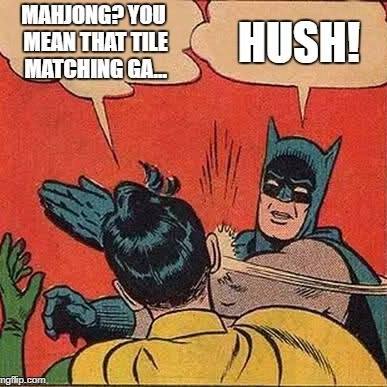Mahjong In Media
Riichi Reporter’s upcoming feature series will explore how mahjong is represented in media and viewed by western culture. While our articles are focused on riichi, we cannot talk about mahjong in culture without discussing the hereditary connection to traditional forms of Chinese mahjong.

It is sometimes difficult to read how mahjong is viewed in broader western culture when you are writing from a position entrenched in that community. Any club that does outreach and local event demos knows that the vast majority of people that have heard the word “mahjong” associate it with a certain tile-matching game popularized throughout the ’80’s and ’90’s. Towards the end of that era The Joy Luck Club offered a view of the game and the people that played it to a broad audience. (I remember my mother watching this movie whenever it was on T.V., and I believe my mother-in-law still keeps a copy of Amy Tan’s novel around.) This portrayal of families and the role of mahjong in building Chinese-American community on the West coast is comparable to the history the game has in the Jewish-American communities.
This kind of exposure has been briefly reignited by the “mahjong scene” in the 2018 film Crazy Rich Asians, which has been examined and explained, sometimes with a necessary mahjong primer for the the benefit of the uninitiated public. (The scene was purposefully filmed without cultural insight for the benefit of a worldwide audience.)
So all this is great, but riichi comes from a different generation and its introduction into western media comes through channels that, while increasingly mainstream, are simultaneously niche—anime and manga. Fans of the medium are already aware of an outlet like Crunchyroll where they can watch Akagi and Saki. But while more widespread digital streaming services in North America and Europe are becoming flush with imported anime series and movies that have been deemed marketable to their customers, nothing mahjong themed is making the transition. The topic is still too obscure to the majority to warrant attention.
Throughout this feature series, Riichi Reporter will look where mahjong lives in various forms of media, examine how some forms might be impacting impacting mahjong, dig into a little history, and perhaps have a little fun with some modern examples.
Follow Riichi Reporter on Twitter for timely updates and news!
